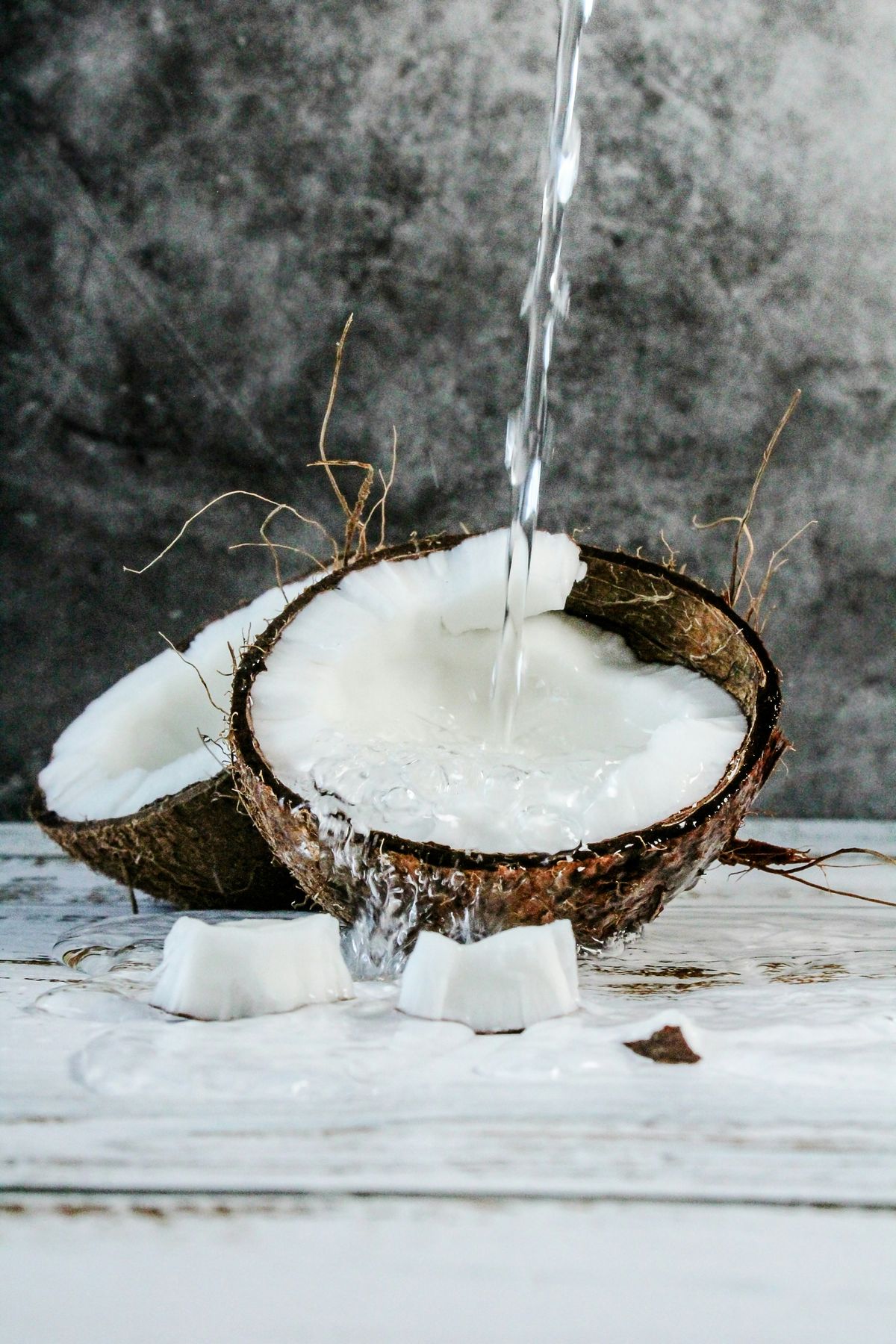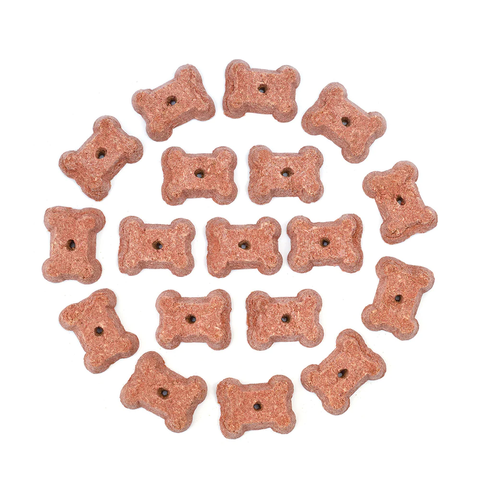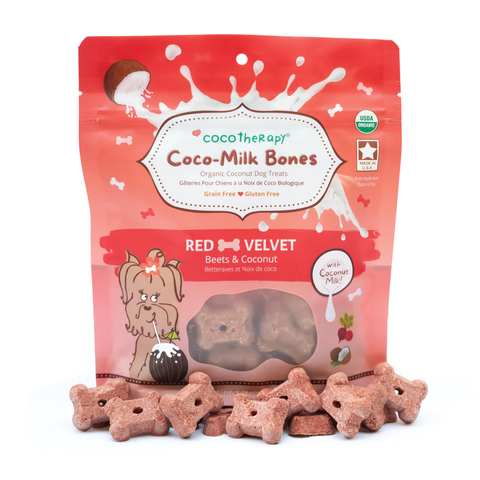
Recommended Article #9May24
Hi, Pet Parents Resources is a platform, where we share with you, what we research as pet parents ourselves. Here, we curate and give, what we hope would be, interesting to important informative articles, videos and even podcasts from our brand creators, experts, researchers, and more all over the world, to aid you in making better choices for your pets.
This recommended article "Coconut Milk vs. Coconut Water: Which is Best for Your Pet?" is curated and sourced from CocoTherapy. If you loved this article, please do feel free to share it around.
Coconut Milk vs. Coconut Water: Which is Best for Your Pet?
Coconut milk and coconut water have become popular health drinks for humans, but did you know that they can also benefit our pets?
Coconut milk and coconut water have become popular health drinks for humans, but did you know that they can also benefit our pets? These two nutritious liquids are extracted from mature coconuts, but they have some distinct and important differences.
In this blog, we'll dive into the nutritional profiles and health benefits of both coconut milk and coconut water for pets. Plus, we'll explore key studies that shed light on their advantages and provide some tips to help you decide which one is best for your furry friend.
Coconut Milk for Pets
Coconut milk is made by extracting creamy liquid from the grated flesh of mature coconuts by pressing the coconut flesh. Creamy in texture and rich in flavor, it is more than just a tasty treat for pets. It's packed full of nutrients that can contribute to their overall health.
Let's take a closer look at the nutritional profile and health benefits of coconut milk for pets.
The Nutritional Profile & Health Benefits of Coconut Milk
Rich in saturated fats, especially medium-chain triglycerides (MCTs), coconut milk provides a quick and easily digestible energy source. These fats are particularly beneficial for pets, supporting their energy levels without straining their digestive systems. The lauric acid in coconut milk also has antimicrobial properties, helping to ward off infections and boost your pet's immune system.
The high fat content in coconut milk can help improve your pet's skin and coat, making it shinier and healthier. This can be particularly noticeable in pets with dry or itchy skin, as these healthy fats can provide much-needed moisture and relief. Additionally, the antimicrobial properties of coconut milk support a healthy gut environment, contributing to better digestion and nutrient absorption.
When introducing your pet to coconut milk, it's important to start slowly to ensure they tolerate it well. Starting with small amounts and gradually increasing the serving size can help avoid any potential digestive upset. Always choose unsweetened, natural coconut milk to avoid unnecessary additives that could harm your pet.
Key Studies on Coconut Milk
Research into coconut milk has highlighted its potential benefits for pets, from reduced inflammation to improved heart health. Here are a few studies that support the use of coconut milk for pets:
- Reduces inflammation and promotes healing. In one study, researchers found that coconut milk had a significant effect on reducing inflammation and promoting healing in stomach ulcers in rats. This suggests that coconut milk could potentially help pets with similar gastrointestinal issues by soothing irritation and aiding in the recovery of the digestive tract.
- Boosts the immune system. Another study revealed that coconut milk kefir exhibited strong antimicrobial and antifungal effects, which could be beneficial in strengthening your pet's immune system. The presence of probiotics in fermented coconut milk like kefir can help maintain a healthy balance of gut flora, which is essential for overall health and immunity.
- Supports heart and cholesterol health. In a 2013 study, scientists found that consumption of coconut milk led to an improvement in cholesterol levels by decreasing LDL (bad cholesterol) and increasing HDL (good cholesterol). While this study was conducted on humans, the results suggest that coconut milk might also support heart health in pets by maintaining a healthy lipid profile.
Coconut Water for Pets
Coconut water is the clear liquid found inside the cavity of young, green coconuts. It is a hydrating, nutrient-rich liquid that can be a refreshing supplement for pets, particularly during hot weather or after exercise. In this section, we'll explore the nutritional profile and health benefits of coconut water for pets.
The Nutritional Profile & Health Benefits of Coconut Water
Coconut water is loaded with electrolytes such as potassium, sodium, and magnesium. These minerals are essential for maintaining proper hydration, muscle function, and nerve signaling in pets.
This natural beverage can also be a tasty way to encourage pets to drink more, ensuring they stay adequately hydrated throughout the day. Plus, its low calorie and low-fat content make it an excellent choice for pets that need to stay hydrated without the risk of weight gain.
Hydration is crucial for pets, especially in warm climates or for those that are particularly active. Coconut water can provide a tasty, nutrient-rich source of hydration, supporting kidney function and helping to prevent dehydration. The potassium in coconut water can also support heart health and muscle function, making it a great addition to the diets of active pets or those with heart conditions.
Key Studies on Coconut Water
Here are some key studies that highlight the potential benefits of coconut water for pets, from improved exercise performance to better urinary health:
- Enhances hydration and electrolyte balance. Coconut water's high electrolyte content makes it an excellent hydrator, as demonstrated in this study. Although the study was conducted on human subjects, the results suggest that coconut water can effectively replenish electrolytes and fluids lost during exercise. This makes it an ideal beverage for active pets.
- Protects liver cells from oxidative damage. Another study found that coconut water concentrate and shikimic acid can protect liver cells from oxidative damage. Shikimic acid, a natural compound with antioxidant properties found in plants, contributes to this protective effect. Though the research was on human cells, the findings suggest potential liver health benefits for pets as well.
- Supports kidney health. In a separate study, researchers found that coconut water has a protective effect against kidney stone formation in rats. When given coconut water along with a substance known to induce kidney stones, the rats showed fewer crystal deposits in their kidneys and less oxidative stress. This study demonstrates that coconut water could also help prevent kidney stones and support kidney health in pets.
Choosing the Right Option for Your Furry Friend
So, now you know the potential benefits of both coconut milk and coconut water for pets. But which one is right for your furry friend? The answer depends on your pet's unique needs and preferences.
Coconut milk is a great option for pets with digestive issues or those that need an immune system boost. It's also an excellent source of MCTs, which can provide quick energy for active pets.
On the other hand, coconut water is ideal for promoting hydration and supporting kidney health in pets. It's also lower in calories compared to coconut milk, making it a suitable choice for pets that need to manage their weight.
Both coconut milk and coconut water are wonderful additions to your pet’s healthy diet, and can be used in rotation.
Ultimately, whichever option you choose, make sure to source high-quality, natural products without potentially harmful additives or preservatives. It's also important to consult with your vet before making any significant changes to your pet's diet. They will be able to advise on the best options for your pet based on their unique needs and health concerns.
Want a delicious way and easy way to give you dog coconut milk? Give them some Coco-Milk Bones, made with organic coconut milk.
The good news is, you can purchase Coco-Milk Bones from our retailers today!
You may find more interesting reads from JOOF Holistic Pet today! Look out for loads of information on our product pages, social media, especially our Pet Parent Resources page.
JOOF Holistic Pet, a Singapore online pet store that focuses on the holistic well-being of your beloved furkid. Our recommended products aim to support and improve health, emotional and physical well-being, and help your pet have a better quality of life without compromise. Look out for Essential, Trendy and Premium quality pet products that are specially curated, with the pet parents concerns' as a priority.
This blog first appeared on the CocoTherapy website, where this article "Coconut Milk vs. Coconut Water: Which is Best for Your Pet?" was curated and sourced from.
Original source: Coconut Milk vs. Coconut Water: Which is Best for Your Pet?
Thank you for reading! We hope to bring you more informative and exciting articles from other resources and our varying retail brands. Through them, we hope more and more pet parents could become their pet's wellness heroes, proactively taking control of their pets’ foundational health from within, with JOOF Holistic Pet - www.joofholisticpet.sg 😊
Disclaimer:
JOOF Holistic Pet has curated and reproduced this article in good faith, which may contain an element of consumer opinion, but cannot be held responsible for any information inaccuracies in it or any use assumed from this information by the reader. JOOF Holistic Pet welcomes positive recommendations for holistic healthcare products, but does not necessarily endorse the author’s opinion. We acknowledge each animal is an individual and may react differently to the highlighted product/s, and that there may also be other similar effective products available.
General recommendations made by JOOF Holistic Pet are solely for informational and educational purposes, and are not a substitute for the appropriate veterinary care. It is important to always consult professional help if you have concerns about your furkid’s health.


